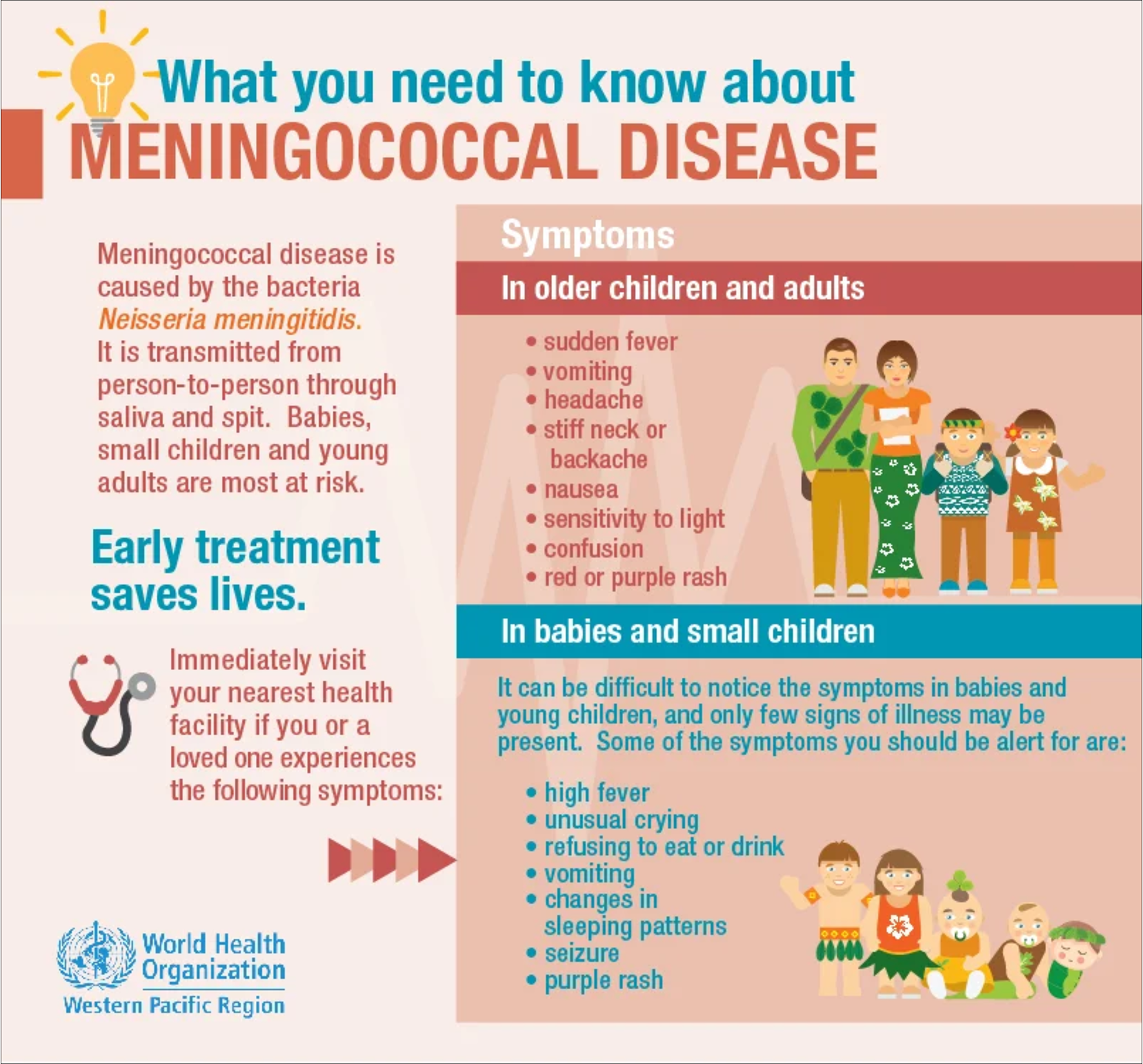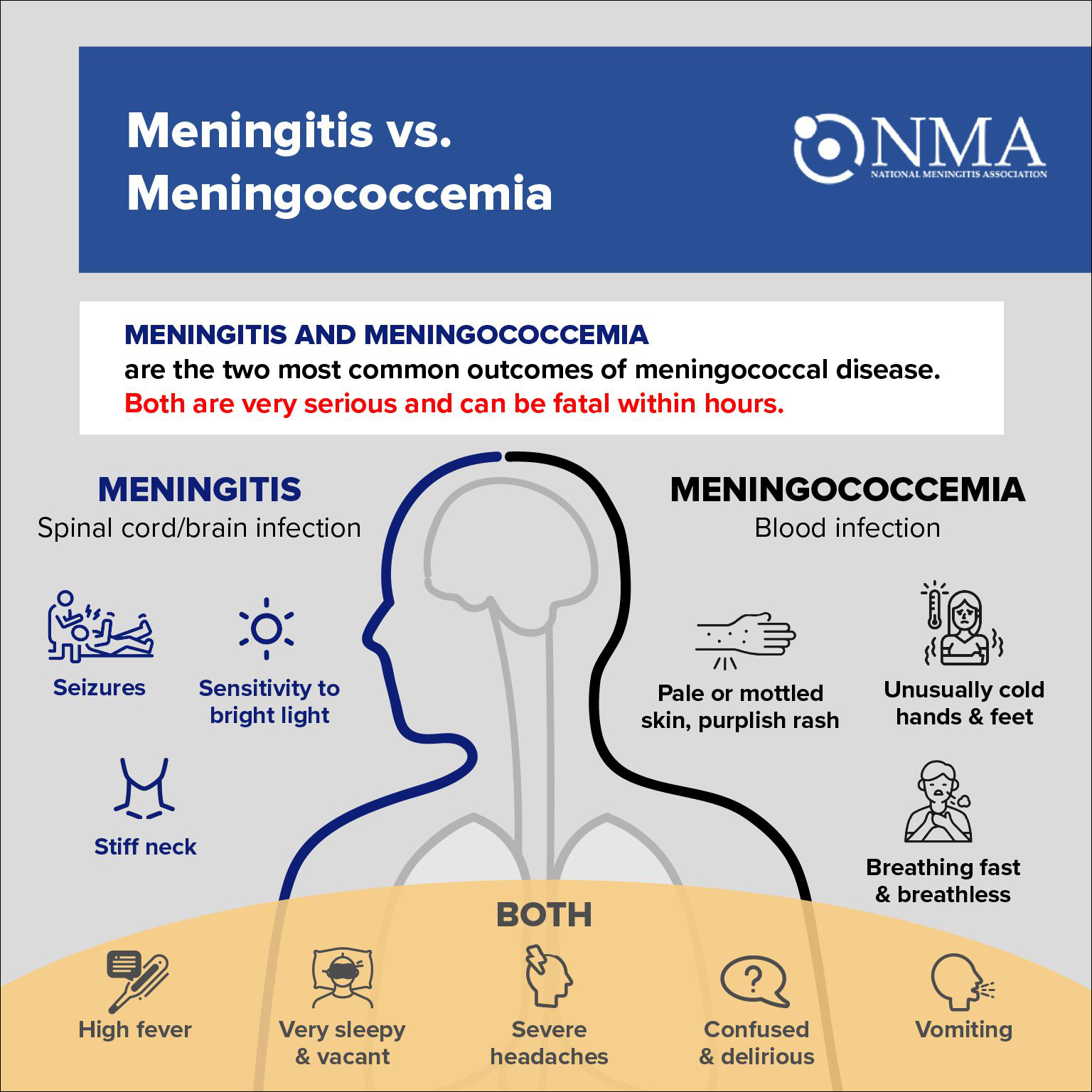Priority Health Issues
Meningococcal Disease (Neisseria Meningitis)
Dallas County Health and Human Services - 2377 N. Stemmons Freeway, Dallas, TX 75207
Telephone: 214-819-2000
Meningococcal disease is a bacterial infection that can lead to serious health complications, including brain swelling. It spreads through contact with saliva or droplets, such as when sneezing, coughing, kissing, or sharing items like cigarettes, utensils, or drinks. For the LGBTQIA+ community, particularly those who have close or intimate contact with others, getting vaccinated is an important step in preventing this serious infection.
How is meningococcal disease transmitted?
Meningococcal disease isn’t easily spread by casual contact, like sitting the same room or walking past someone. It can be passed from person to person through close contact with someone’s saliva or respiratory droplets. This can happen when an infected person coughs or sneezes near you, kisses you on the mouth, or shares items like cups or cigarettes. People can carry the bacteria in their nose or throat without showing symptoms, so both healthy individuals and those who are sick can spread the bacteria.
Meningitis and bloodstream infections are the two most common types of meningococcal infections. Both are very serious, requiring you to seek help as soon as you can. Symptoms can first appear as a flu-like illness and rapidly worsen. Seek medical attention immediately for symptoms of meningococcal meningitis.
Meningococcal meningitis:
- Fever
- Headache
- Stiff neck
- Altered mental status (confusion)
- Nausea
- Increased sensitivity to light
- Vomiting
* most common
Bloodstream infection:
- Cold hands and feet
- Diarrhea or nausea with or without vomiting
- Fatigue (feeling tired)
- Fever and chills
- Rapid breathing
- Severe aches or pain in the muscles, joints, chest, or abdomen
- In the later stages, a dark purple rash
Who is most susceptible to meningococcal disease?
Meningococal disease is more common among young children, especially those under 4 years old. However, certain adults are also at higher risk, particularly those living in close or crowded conditions, like college dorms or group settings. The LGBTQIA+ community, especially those in communal living situations or those with multiple partners, may also be at increased risk for this disease due to close contact.
Meningococcal disease is spread through saliva or droplets from coughing, sneezing, or kissing. It’s important to note that while most people are not at risk due to previous exposure or immunity, those who are exposed to the bacteria without immunity are at higher risk.
The CDC specifically recommends the MenACWY vaccine for certain groups, including travelers to Florida and individuals living with HIV, as they may be at higher risk for contracting the disease. Florida has seen higher rates of meningococcal disease, and people living with HIV have a weakened immune system, making them more vulnerable.
While meningococcal disease is serious, fewer than 10% of cases result in death. The disease is more fatal in some forms, like meningococcemia (which can be fatal in about 17% of cases), while meningococcal meningitis has a lower fatality rate of around 7%. Vaccination is an important step in protecting yourself from this potentially life-threatening infection.
There are vaccines available – MenACWY and MenB – that protect against different types of the bacteria. The CDC specifically recommends the MenACWY vaccine for travelers to Florida and individuals living with HIV, as these groups may be at higher risk. For students entering a Texas college or university, you are required to have the meningococcal vaccine before starting school.
Can meningococcal disease be prevented?
You can reduce the risk of getting meningococcal disease by practicing good hygiene. Always cover your nose and mouth when coughing or sneezing, and throw away used tissues right away. Wash your hands thoroughly after touching things that may have been in contact with saliva, like tissues or a person’s belongings. Avoid sharing items like cigarettes, straws, cups, glasses, toothbrushes, or eating utensils.
If you’ve been in close contact with someone who has meningococcal disease, your doctor may recommend taking antibiotics to help prevent infection. These antibiotics target the bacteria in the throat. It's best to consult your doctor to get specific advice for your situation. Even after taking antibiotics, watch for any signs of illness and contact a doctor immediately if symptoms appear.
The meningococcal vaccine is recommended in areas with high rates of the disease or for travelers going to places with outbreaks. It’s also recommended for all children ages 11-18 to get vaccinated to ensure they are protected. Freshmen in college, especially those living in dorms, are at higher risk and should be vaccinated before starting school if they haven’t already been.
QUICK LINKS
LOCATIONS
EMPLOYEES
-
You must be on the network to see these links.







